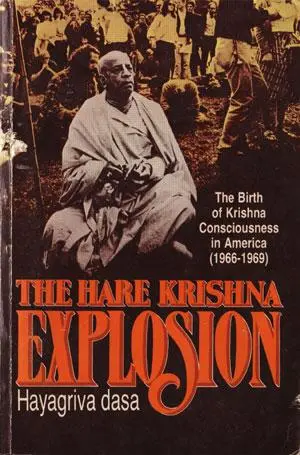This evening I was reading from the “Mukunda mala storta”. Using a Sanskrit edition published by Śrīla Bhaktivinoda Ṭhākura in 1895, Śrīla Prabhupāda began translating the Mukunda-mālā-stotra in the late 1950’s. But after completing six verses with commentary, he suspended it to work on the Śrīmad-Bhāgavatam. He never resumed it. The following is verse 3 with Srila Prabhupāda’s translations and purport. It is a very sweet verse, and powerful purport.
O Lord Mukunda! I bow down my head to Your Lordship and respectfully ask You to fulfill this one desire of mine: that in each of my future births I will, by Your Lordship’s mercy, always remember and never forget Your lotus feet.
…To forget one’s relationship with the Lord and thus to remain overwhelmed by material hankerings is the most condemned mode of life. This is exactly the nature of animal life. When the living entity is born in a species of lower animals, he completely forgets his relationship with the Lord and therefore remains always busy in the matter of eating, sleeping, fearing, and mating. Modern civilization promotes such a life of forgetfulness, with an improved economic condition for eating and so on. Various agents of the external energy make explicit propaganda to try to root out the very seed of divine consciousness. But this is impossible to do, because although circumstances may choke up a living being’s divine consciousness for the time being, it cannot be killed. In his original identity the living entity is indestructible, and so also are his original spiritual qualities. One can kill neither the spirit soul nor his spiritual qualities. To remember the Lord and desire to serve Him are the spiritual qualities of the spirit soul. One can curb down these spiritual qualities by artificial means, but they will be reflected in a perverted way on the mirror of material existence. The spiritual quality of serving the Lord out of transcendental affinity will be pervertedly reflected as love for wine, women, and wealth in different forms. The so-called love of material things—even love for one’s country, community, religion, or family, which is accepted as a superior qualification for civilized human beings—is simply a perverted reflection of the love of Godhead dormant in every soul. The position of King Kulaśekhara is therefore the position of a liberated soul, because he does not want to allow his genuine love of God to become degraded into so-called love for material things. (from purport)














